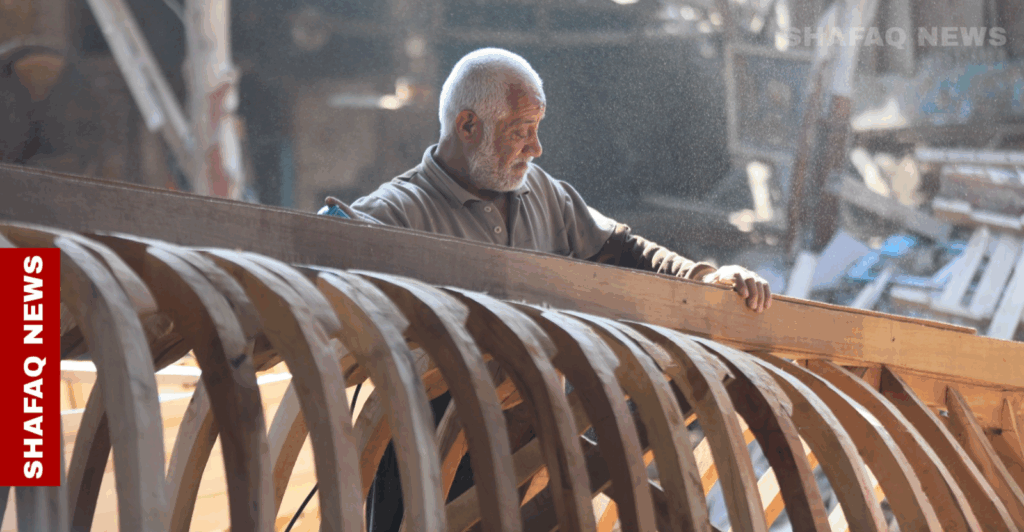In the heart of ancient Kufa, where Iraqi tradition clings to the air like the scent of sawdust, one man stands against the tide of time.
Sayyed Nehma Hassan al-Fahham, better known as Abu Karrar, has turned a fading heritage into a living legacy, handcrafting wooden boats just as his father and grandfather did before him.
At over sixty, Abu Karrar moves with the ease of a man half his age, weaving between planks and tools in his modest workshop, tucked within the old city’s narrow, echoing streets.
Here, with calloused hands and steady resolve, he breathes life into vessels that glide through Iraq’s rivers and marshes—from the southern waters of Basra to the far edges of Tharthar.
Boats Born of Tradition
“We build for fishermen—and sometimes for fun,” he says with a quiet smile, gesturing toward a half-finished bellem tayara (fast boat), a large craft that takes over a month of meticulous work.
Each boat tells a different story: the Kad, Rika, Kad Abu al-Gharafa, and Kad Karufi serve different needs, while the smaller Jalaka, perfect for shallow waters, can be built in just a week. Prices stretch from 500,000 ($379.85) to 7 million dinars ($5,317.96), with specialized sea-going boats like the Maheela fetching up to 25 million ($18,992.73).
Blending Old Soul with New Strength
Abu Karrar’s tools may look old-fashioned, but his methods are a careful blend of past and present. He still uses traditional woods—jam, sidr, touth, and imported jawy—but the tar once used to seal hulls has given way to fiberglass, boosting durability and streamlining the process.
“We adapt where we need to,” he said, “but the spirit of the craft stays the same.”
Kufa’s Boats, Iraq’s Waters
What starts in Kufa doesn’t stay there. His boats travel—shipped to Basra, Maysan, Al-Nasiriyah, Al-Diwaniyah, Al-Kut, and beyond.
“We source wood locally or import it, depending on the order,” he explained. “Six-arm length, seven-arm, whatever the customer wants—we make it.”
Despite the pressures of modernization and faster transport, Abu Karrar and his brothers keep the flame of this ancient trade burning. Their boats aren’t just vessels—they’re floating memories, carved in wood, and launched into Iraq’s living waters.
source/content: shafaq.com (headline edited)
___________

__________
IRAQ
